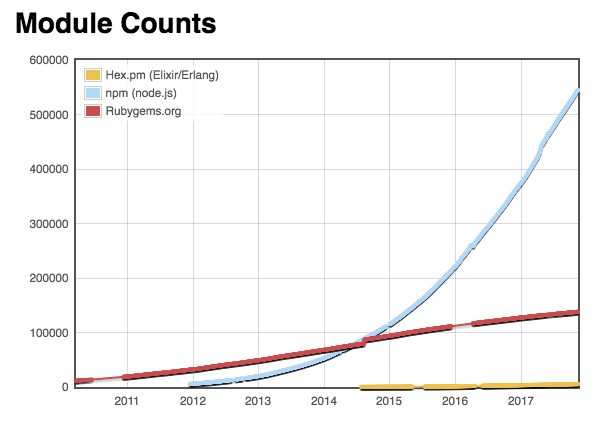webpack managed assets

Nikola Đuza
Semaphore ❤️ Rails Semaphore ❤️ JavaScript
language.history(📚)
- Ruby -1995
- JavaScript -1995
- Rails - 2004
- React - 2013
language.history(Rails, JS)
- Unobtrusive JavaScript - Rails 3.0
- Asset Pipeline - Rails 3.1
- Webpack/React/Angular/Vue.js out of the box - Rails 5.1
Unobtrusive JS
<%= link_to "an article", @article, remote: true %><a href="/articles/1" data-remote="true">an article</a>$ ->
$("a[data-remote]").on "ajax:success", (e, data, status, xhr) ->
alert "The article was deleted."
Asset pipeline
The first feature of the pipeline is to concatenate assets, which can reduce the number of requests that a browser makes to render a web page.

Asset pipeline
The second feature of the asset pipeline is asset minification or compression.

Asset pipeline
The third feature of the asset pipeline is it allows coding assets via a higher-level language, with precompilation down to the actual assets.

I: I want to use lodash.
AP: It's easy, use rails-assets or just include the file in the pipeline by hand.
I: Awesome, thanks 🍺.
gem "rails-assets-lodash", "~> 2.4.1"I: Hey, I want to use enzyme to test React.
AP: OK, did you try rails-assets?
I: Yeah, it's not on there 😔.
AP: And did you try including the file in the pipeline?
I: Yep, but it's too big, and they don't serve minfied version 😢.
AP: ¯\_(ツ)_/¯

node package manager

- released in 2010.
- package.json
browserify-rails 💎
- simple to use
- supports modules
- works with Asset Pipeline


problem with browserify-rails
- slow asset compilation on CI/CD
- slow asset compilation in development
- slow asset compilation in tests




webpacker 💎
- latest and gratest
- yarn
- React support



browserify-rails vs webpacker
Asset compilation went from 11 minutes to 1 minute.
browserify-rails vs webpacker
Cucumber scenarios went from ~5 minutes to ~2 minutes.


browserify-rails vs webpacker
Minified application.js went from ~8 MB to ~4.5 MB